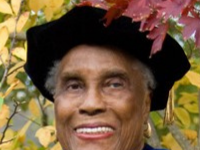 This past Sunday, Tuskegee University held a chapel service to honor John W. Whittaker, the educational institution’s first chaplain. The service was part of the Whittaker family reunion that took place on campus. The family reunion was held on the 90th anniversary of Reverend Whittaker’s retirement from Tuskegee.
This past Sunday, Tuskegee University held a chapel service to honor John W. Whittaker, the educational institution’s first chaplain. The service was part of the Whittaker family reunion that took place on campus. The family reunion was held on the 90th anniversary of Reverend Whittaker’s retirement from Tuskegee.
Whittaker was born in Atlanta in 1860. He earned degrees at Atlanta University and the Hartford Theological Seminary. In 1888, he was appointed chaplain at what was then Tuskegee Institute. He served in that role for three years and then served as a minister in New Orleans and Savannah.
Whittaker returned to Tuskegee in 1901 where he served as chief financial officer, dean of the chapel, and dean of the Bible training Institute. He retired in 1927.
Rev. Whittaker died in 1936 and is buried in the campus cemetery.











This is my great grandfather
This is my Great Grandfather
This is my daughter Akina great great Grandfather as well. Joanne Fobbs is her Great Aunt and Sandra Douthitt is my daughter’s mom.
This is my Great Great Grandfather
This is my great great grandfather .
This my Great Grand father
This is my great-great grandfather, and my family attended the reunion ceremony. Great man.
This is my great great grandfather.
This is my Great Great Grandfather.
This is my Great Great Grandfather
My great great grand pop
This is my Great Grand Father
While attending Tuskegee University. I used to walk past his and his wife’s grave everyday.
This is my Great Great Grandfather.